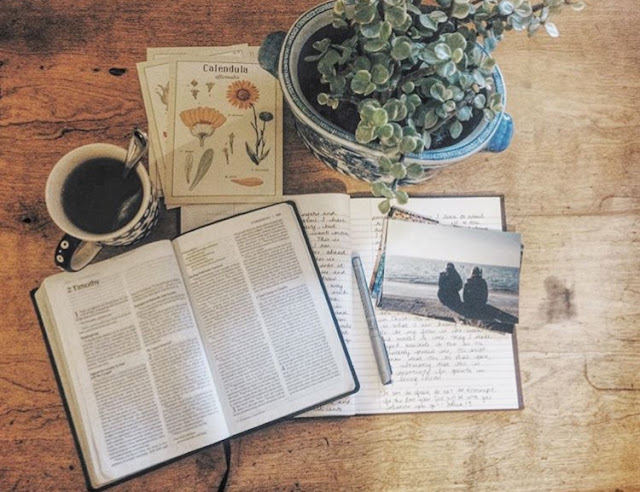living as resistance
At times it can seem as though the world has gone completely mad and awry. One needn't spend more than a few moments on social media to come to this glum conclusion.
When tales of war, violence, authoritarianism, environmental degradation and injustice engulf the headlines, I am tempted to burrow myself into isolation and numbness. More scrolling, less connection. I suddenly feel as though the simple workings and pleasures of my ordered life are trite, unimportant. What's more, I feel guilty about them and the privilege they might represent. Deep down, I have this gnawing belief that it is wrong of me to go on living happily and peacefully when such overwhelming evil obscures our world.
This posture is somewhat reminiscent of the words of King Solomon in the book of Ecclesiastes. In this book of wisdom, he beautifully wrestles with life's many struggles "under the sun," detailing the mysteries of burdensome work, injustice, death. He writes such things as:
And, later:
One word is threaded and echoed throughout the book of Ecclesiastes: meaninglessness.
Of course, this nihilistic perspective is not where the book ends. Rather, Solomon ultimately discovers the purpose of life in the character of God, who infuses existence with meaning. He is in the business of redeeming all things, even though it might not always seem like it.
Yet, in difficult times, I can't help but resonate with King Solomon's nearly hopeless and defeated mien. This is how I feel in face of the world's suffering and darkness. How can one go about working, and thinking their work means something, when the world is so fractured, so broken? I, too, resort to crying "everything is meaningless!" when delight fades, when strong men stoop, when street overflow with danger, when songbirds grow faint, when dust returns (Ecclesiastes 12).
As mentioned, the book of Ecclesiastes offers wisdom about this, pointing us to the God who created and sustains life.
Ultimately, as I turn to Him, I discover that setting about my daily tasks faithfully—and joyfully—is an act of obedience. And, unlike withdrawal or sloth, living devotedly and fully is a way to defy the shadow of death and suffering of this world.
Of course, I won't act as if this idea is my own. Many theologians and philosophers have argued this point over the years. And recently, I was struck by the words of a beloved writer, Sarah Clarkson, on this very subject. She stated:
"Beauty is a defiance of war."
In her post, Sarah Clarkson argues that we ought to continue ordering our world in times of despair. Ultimately, infusing our lives with beauty, and keeping faith in view of suffering, are acts of pure defiance of evil. We thus participate in the overcoming of evil by "[...] claiming and cultivating spaces that are opposite to war, defiant of evil, allowing Beauty to be at work in us to claim and renew this broken world."
I can't tell you how impactful this was for me.
Setting about our tasks faithfully and dutifully, thus bringing order, joy and beauty to our small corners of the universe, is a way to resist the shadow of death & suffering around us. The process of cultivating peace—the very opposite of war—counteracts violence and injustice. It sustains pockets of goodness and renewal in this fractured world.
What if tending for our children, tackling our work responsibilities, homemaking, creating art, delighting in a novel, making good food, smelling the roses in our gardens and gathering with friends was not a sign of ignorance or denial amidst brokenness and evil? What if, paradoxically, these acts are a powerful response to it? A defiance of it?




Comments